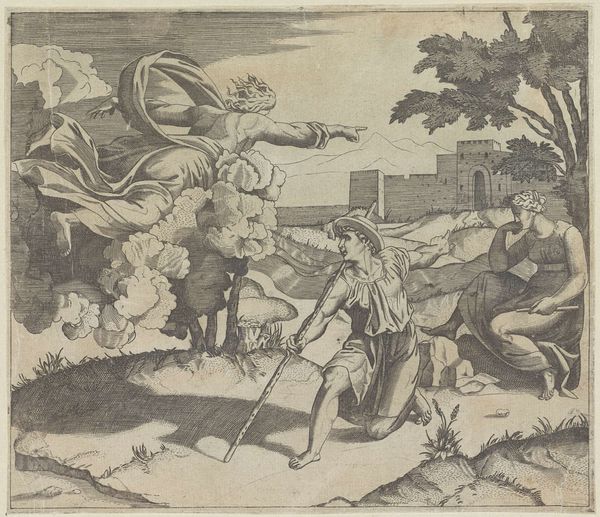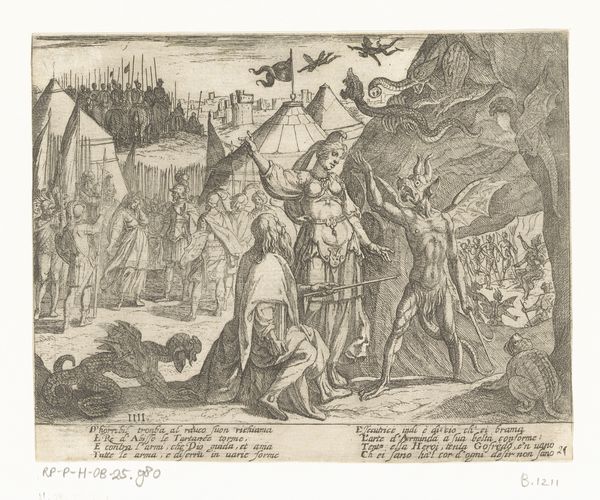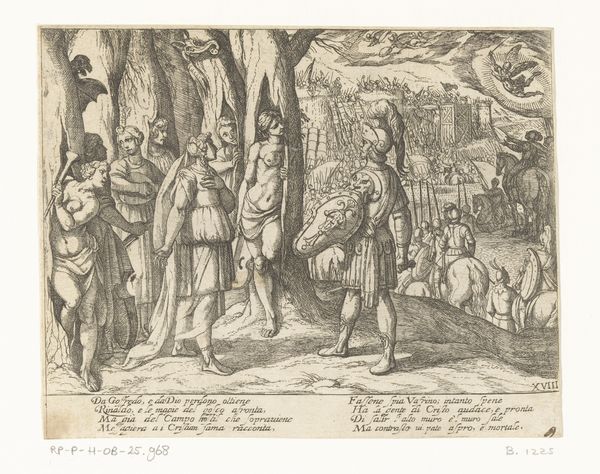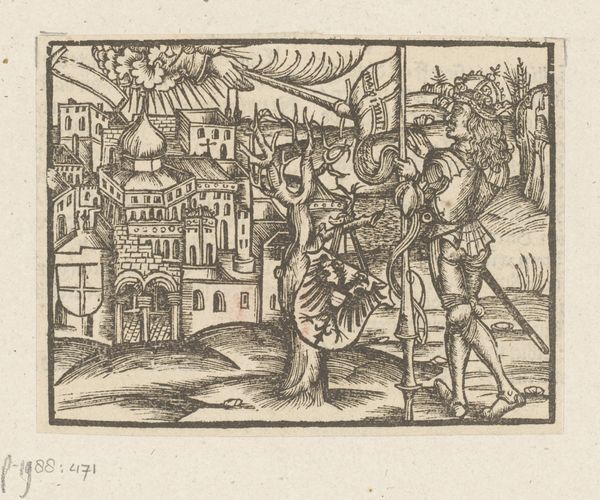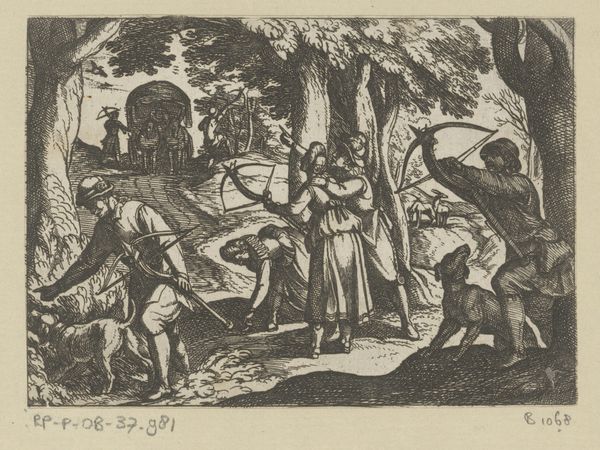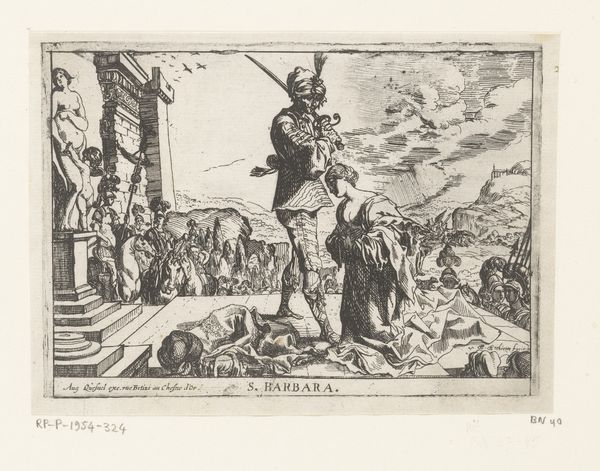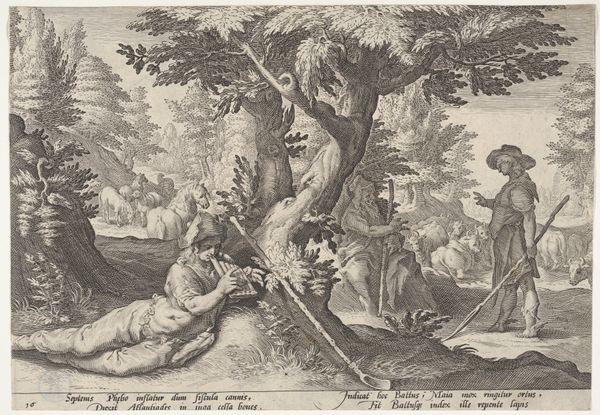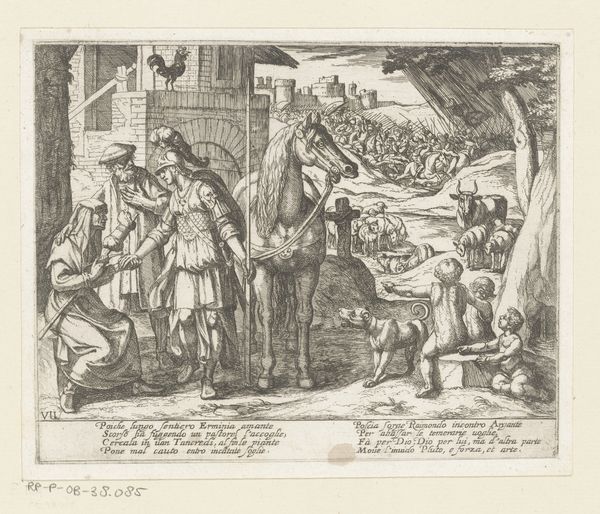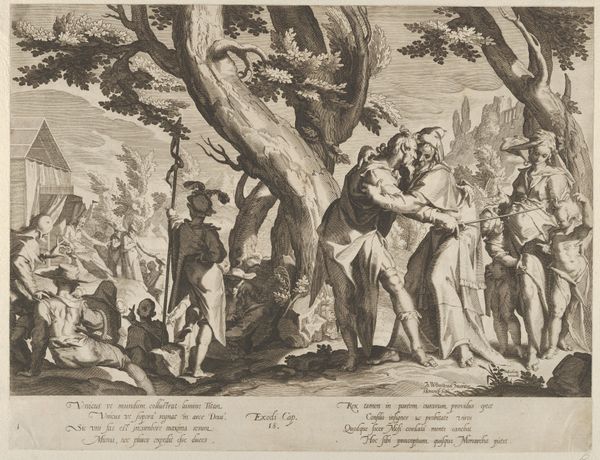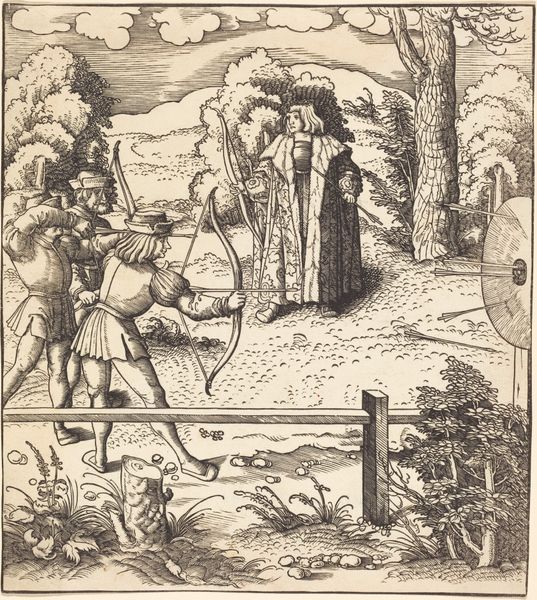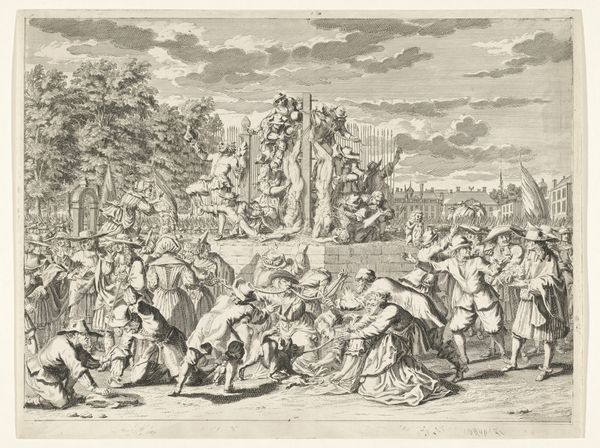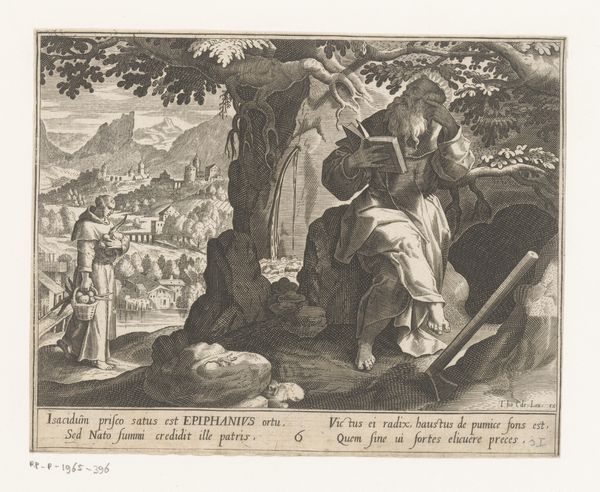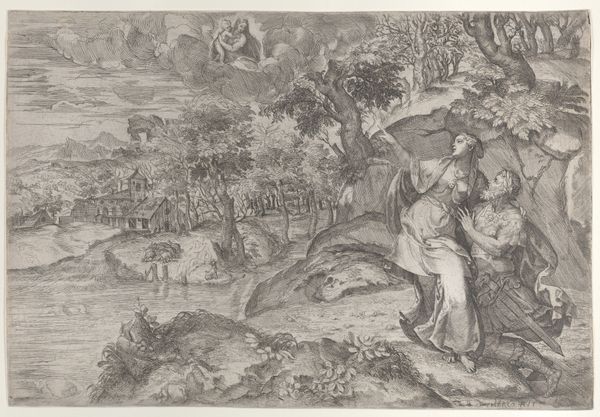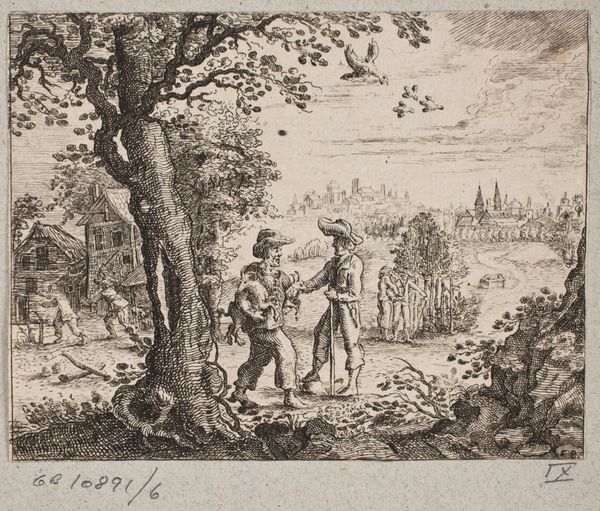
drawing, ink
#
drawing
#
narrative-art
#
landscape
#
figuration
#
ink
#
history-painting
Dimensions: overall: 15.5 x 20 cm (6 1/8 x 7 7/8 in.)
Copyright: National Gallery of Art: CC0 1.0
Editor: So, here we have "Abraham and Isaac," an ink drawing by Hermann Weyer. It has a somber and unsettling feeling. The figures seem almost stranded in the landscape. What strikes you most about this piece? Curator: I’m struck by the power dynamics visualized here. Abraham's gesture, directing his son Isaac. How does that power manifest visually, and what ideologies does it reinforce or question? Is it merely a father's authority, or does it reflect broader societal hierarchies of the time? Consider its original viewers: how might this scene of potential violence have resonated with their lived experiences of power and oppression? Editor: That's a really interesting point. I was just thinking about the narrative, but not the deeper societal implications. The landscape almost seems to mirror that tension, the way it's both idyllic and isolating. Curator: Exactly! Landscape isn’t neutral; it can represent freedom or confinement. Think about who is usually free to roam and who is restricted in these spaces. The city, which might symbolize a kind of "civilization" remains on the left horizon, with wilderness lurking to the right. Does this reflect the colonialist mentality or ideas about masculinity in a certain society? What does it reveal about how these viewers engaged with questions of morality, and perhaps, even justified or excused the sacrifices of individuals in the name of the "greater good?" Editor: Wow, I didn’t think of the landscape in that way at all! Curator: The purpose of art is to see its many angles; this makes this historical, biblical event both past, present and alive. Keep looking at the landscapes within figures as the world shifts, too. Editor: This has completely changed how I view the drawing; now it’s not just a biblical scene, but a powerful commentary on structures and their moral implications. Thanks!
Comments
No comments
Be the first to comment and join the conversation on the ultimate creative platform.
